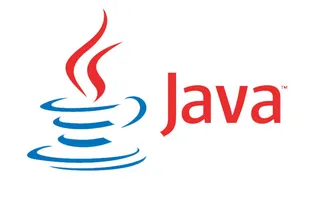More Tips to Keep Your Information Safe From Internet Hackers
Keep your personal information safe from criminals.

1 / 17
Security Breach - A host of high profile celebrities including Michelle Obama, Beyoncé and Jay Z had their identities hacked in March, and this week journalist Brian Krebs published an investigation detailing how hackers infiltrated major data aggregators and collected Social Security numbers, birth records, credit card and background reports of millions of Americans. With the new investigation we are adding in more tips for keeping your personal information safe from cyber crooks. — Britt Middleton and Dominique Zonyéé (Photos from left: Paul Martinka / Splash News, Neilson Barnard/Getty Images, Chip Somodevilla/Getty Images)

2 / 17
Keep Your Firewall Turned On - A firewall helps protect your computer from hackers who might try to gain access to crash it, delete information or even steal passwords or other sensitive information. Software firewalls are widely recommended for single computers. The software is prepackaged on some operating systems or can be purchased for individual computers. (Photo: Nick Pandolfo/MCT /LANDOV)

3 / 17
Keep Your Operating System Up to Date - Computer operating systems are periodically updated to stay in tune with technology requirements and to fix security holes. Be sure to install the updates to ensure your computer has the latest protection. (Photo: Getty Images/STOCK)

4 / 17
Install or Update Your Anti-Virus Software - Anti-virus software is designed to prevent malicious software programs from embedding on your computer. If it detects malicious code, like a virus or a worm, it works to disarm or remove it. Viruses can infect computers without users' knowledge. Most types of anti-virus software can be set up to update automatically. (Photo: Getty Images/STOCK)

5 / 17
More Anti-Spyware Precautions - Some operating systems offer free spyware protection, and inexpensive software is readily available for download on the Internet or at your local computer store. Be wary of ads on the Internet offering downloadable anti-spyware. In some cases, these products may be fake and may actually contain spyware or other malicious code. (Photo: Adam Gault/Getty Images)
ADVERTISEMENT

6 / 17
Be Careful What You Download - Carelessly downloading e-mail attachments can circumvent even the most vigilant anti-virus software. Never open an email attachment from someone you don't know, and be wary of forwarded attachments from people you do know. They may have malicious code embedded. (Photo: REUTERS/George Frey)

7 / 17
Turn Off Your Computer - With the growth of high-speed Internet connections, many opt to leave their computers on and ready for action. The downside is that being "always on" renders computers more susceptible. Beyond firewall protection, which is designed to fend off unwanted attacks, turning the computer off effectively severs an attacker's connection — be it spyware or a bot that employs your computer's resources to reach out to other unknowing users. (Photo: AP Photo/Sebastian Scheiner)

8 / 17
For More Information - If you think you are the victim of a hacker or cyber scam, you can file a complaint here. To learn about more ways to protect yourself online, visit onguardonline.gov. (Photo: San Jose Mercury News/MCT/Landov)

9 / 17
Secure and Change Your Passwords - It is imperative that passwords remain safe and secure and different for your favorite accounts. According to a Pew Research Center study, roughly one in three online teens (30 percent) reported sharing one of their passwords with a friend, boyfriend or girlfriend. Sharing passwords can help you remember it, but is also a security risk. (Photo: Laurence Dutton/Getty Images)

10 / 17
Using Shared Computers - When you use a public or shared computer, you are especially vulnerable to hackers. However, many sites such as Google are offering two-step verification processes that require more than just a password to log in. With the service, you have to remember your password and a special keyword is sent to you via text message. (Photo: Fuse/Getty Images)
ADVERTISEMENT

11 / 17
Trick Hackers by Using Fake Personal Data - If you have ever opened a new online account, then you are familiar with the security questions: What is your favorite pet or what is your mother’s maiden name? But when you answer with the real information you put yourself at risk. For example, Mitt Romney's personal Hotmail account was reportedly hacked thanks to the attacker guessing the name of his favorite pet. (Photo: Blend Images/Hill Street Studios/Getty Images)

12 / 17
That Free Wi-Fi May Cost You - Free Wi-Fi may sound great, but make sure you confirm that the router has restrictions and security. According to a study done by the Independent Security Evaluators, the Wi-Fi routers used at home, coffee shops or the office are easy to hack. (Photo: LaCoppola-Meier/Getty Images)

13 / 17
Not Everything Is Meant to Be Shared - If you are one of those people who fill out their Internet profiles to its entirety, you may want to change your behavior. Occasions such as birthdays, graduation dates and wedding dates can be used to access your private information. (Photo: Gary S Chapman/Getty Images)
Photo By Gary S Chapman/Getty Images

14 / 17
Get Your Head Out of the Cloud - While Cloud sharing on sites such as Google and Dropbox are free and easy to use, they can be hazardous for your personal information because the data stored in the cloud may not be encrypted. If you are sharing information, hackers may be able to access the vulnerable files.(Photo: Apple)

15 / 17
Back It Up - Invest in a hard drive to back up information stored on your computers, iPhones and tablets. Backing up limits your reliance on cloud sharing and also insures that your data will be safe from hackers and remain intact. (Photo: Gavin Roberts/Computer Arts Magazine via Getty Images)
ADVERTISEMENT

16 / 17
Beware of Java Software - The U.S. Department of Homeland Security in January advised Americans to avoid using the programming language and computing platform Java software. Computer security experts said that hackers have found a flaw in Java's coding that creates an opening for criminal activity and other high-tech mischief.(Photo: Java)
Photo By Photo: Java
